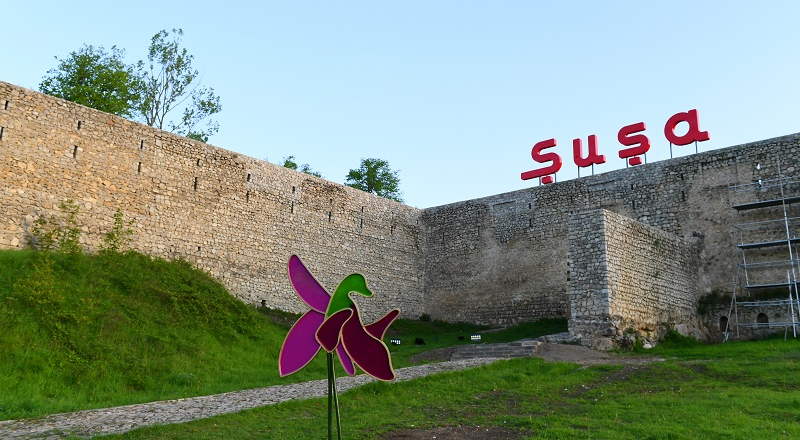Azerbaijan’s restoration of Shusha highlights need to protect islamic heritage

ISLAMABAD, DEC 19 (APP/DNA):The restoration of Shusha, a historic cultural hub, stands as a powerful example of preserving Islamic heritage amidst global challenges.
A seminar held here recently celebrated Shusha’s recognition as the Cultural Capital of the Islamic World for 2024, emphasizing its significance and the shared responsibility of the Muslim world to protect its rich heritage.
The MUSLIM Institute, in collaboration with the Embassy of Azerbaijan, organized a seminar titled “Shusha – Cultural Capital of the Islamic World for 2024: A Testament to the Muslim World’s Rich Heritage” here at the National Library of Pakistan.
The event gathered prominent speakers, including Ambassador Masood Khan, former President of Azad Jammu & Kashmir; Sahibzada Sultan Ahmed Ali, Chairman of the MUSLIM Institute; Khazar Farhadov, Ambassador of Azerbaijan to Pakistan; and Alisher Tokhtaev, Ambassador of Uzbekistan to Pakistan.
Azerbaijan Ambassador Khazar Farhadov highlighted the cultural, historical, and spiritual importance of Shusha, a city in Azerbaijan that has been a beacon of artistic and intellectual achievements for centuries. Declared the Cultural Capital of the Islamic World by the Islamic World Educational, Scientific and Cultural Organization (ICESCO), Shusha symbolizes the resilience and vitality of Muslim heritage.
Ambassador said the Shusha had long served as a center for poets, architects, scholars, and musicians. Despite suffering extensive damage during the Armenian occupation, Azerbaijan successfully liberated the city on November 8, 2020, following a 44-day Patriotic War. In January 2021, Azerbaijan’s President declared Shusha the cultural capital of the country, marking a significant milestone in its restoration journey.
Khazar said restoration of Shusha is seen as a restoration of historical justice for Azerbaijan. Efforts to rebuild the city’s historical and cultural identity were commended during the seminar. These efforts not only preserve the city’s rich heritage but also serve as an inspiration for the broader Muslim world, particularly as Islamic heritage faces threats globally.
Speakers highlighted ongoing challenges to Islamic cultural heritage. In South Asia, repressive policies such as Hindutva pose threats to Muslim heritage in India. Meanwhile, in Palestine, sacred sites are at risk due to occupation and apartheid policies. Across the Middle East, conflicts and civil wars continue to endanger centuries-old Islamic monuments and traditions.
Against this backdrop, Shusha’s restoration stands out as a beacon of hope. Azerbaijan’s commitment to reviving Shusha’s cultural and religious significance offers a model for other nations. The speakers stressed the importance of collective efforts by Muslim countries to preserve their shared heritage, promote cultural exchange, and ensure that future generations can connect with their history.
The seminar also explored the role of cultural preservation in promoting peace and stability. Shusha’s legacy serves as a reminder of the power of cultural identity to inspire unity and cooperation. Speakers emphasized that safeguarding Islamic heritage is a shared responsibility, requiring collaboration and determination from the global Muslim community.
Discussions at the event also delved into the decades of challenges faced by Shusha during the Armenian occupation. The city suffered immense damage, but Azerbaijan’s efforts have ensured its revival. This achievement carries symbolic significance, not only for Azerbaijan but for the entire Islamic world.
The seminar brought together diplomats, academics, and cultural enthusiasts, creating a platform to reflect on the importance of Shusha in preserving Islamic heritage. Participants agreed that cultural restoration efforts like those in Shusha play a crucial role in inspiring future generations and fostering mutual understanding across borders.
In conclusion, the event underscored the shared responsibility of the Muslim world to protect its cultural identity. The restoration of Shusha serves as a powerful example of resilience and dedication to preserving history, offering hope in the face of global challenges to Islamic heritage.
Related News

Pakistan urges UK to act against accounts accused of inciting violence
The move follows Pakistan’s earlier submissions to the British High Commission in Islamabad, where, officialsRead More

Field Marshal Asim Munir Celebrates Christmas at Church
RAWALPINDI – DEC 25 /DNA/: In a powerful demonstration of national unity and interfaith harmony,Read More


Comments are Closed